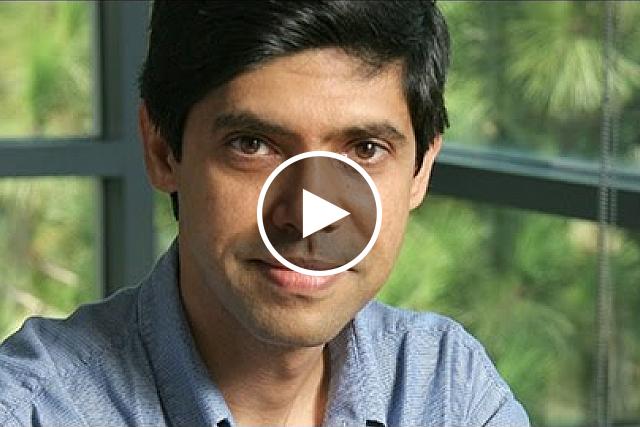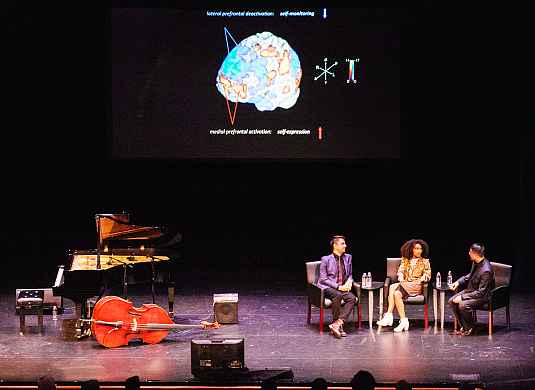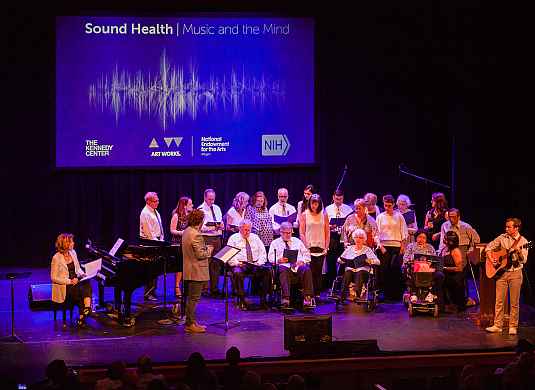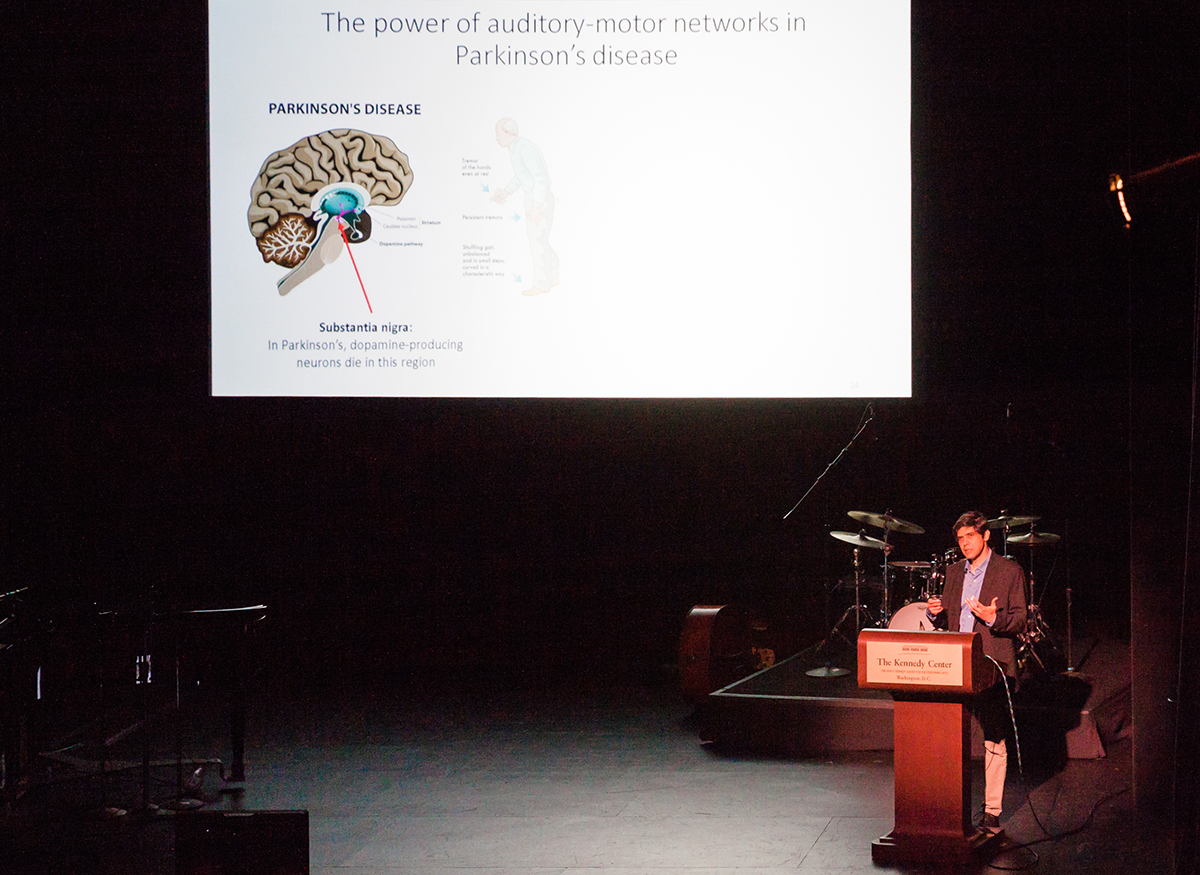You are here
Creative Aging
Performance
Cognitive neuroscientist Dr. Aniruddh Patel and soprano Renée Fleming partner with D.C.–based jazz trio Mark G. Meadows & the Movement and the Different Strokes for Different Folks choir for this interactive presentation on how the mind and body respond to creating music.
Session
Music may help with cognitive aging
Dr. Aniruddh Patel, associate professor of psychology at Tufts University, explains how music may help with cognitive aging as Renée Fleming performs. Dr. Patel described a study that suggests making music, such as singing or playing an instrument, at least once every two weeks is associated with better attention, episodic memory & executive functions. The results suggest that making music might be a potential protective factor for cognitive decline. A longitudinal study would be needed to prove causation.
Music therapy that helps people with aphasia
Choir of Stroke survivors sing. Singing is a form of music therapy that helps people with aphasia, the loss of the ability to understand or express speech as a result of by brain damage caused by Stroke.
Music therapy to help people with Parkinson’s disease
Dr. Aniruddh Patel, associate professor of psychology at Tufts University, talks about the use of music therapy to help people with Parkinson’s disease walk fluidly. For Parkinson’s patients, dopamine-producing cells in the brain die and no longer project to important parts of the brain. This leads to numerous motor deficits including tremors, shuffling gait, and a higher risk for falling. However, the auditory motor networks that connect movement with the beat of music are still active, even in Parkinson’s patients. Thus, music therapy may help Parkinson’s patients walk more fluidly because their movement becomes synchronized to the music.
This page last reviewed on March 12, 2018




